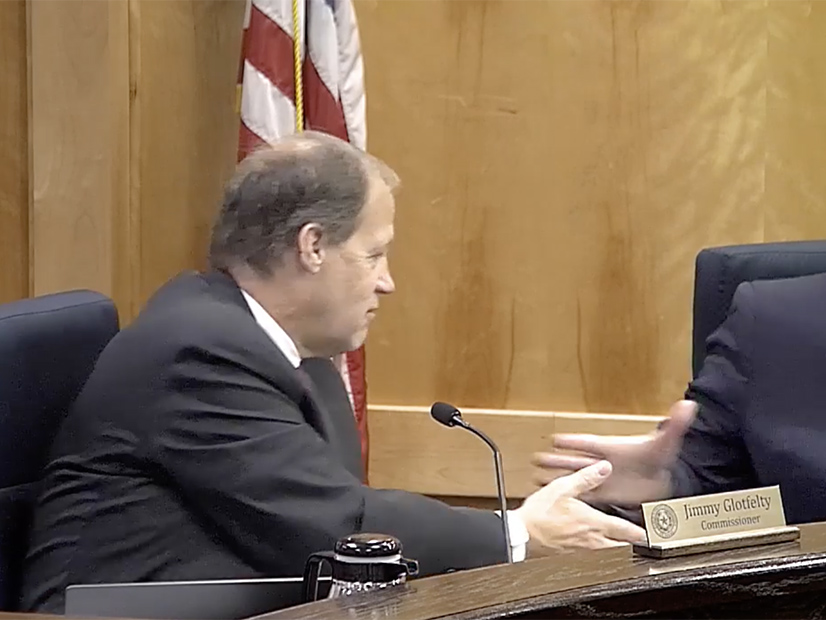A coastal storm packing high winds and heavy rains left hundreds of thousands of customers across the Northeast without power Dec. 18.
Electric utilities prepared in advance, bringing in reinforcements and pre-staging them as the unnamed storm moved north with rain and storm surges that wreaked havoc in parts of the Southeast on Dec. 17.
But damage on Monday was so widespread, particularly in New England, that power outages proved slow to fix.
By midafternoon, poweroutage.us was showing 750,000 customers without electricity in five of the New England states. According to utility reports, well over 100,000 others lost power but had regained it by that point.
The sixth state — Vermont, so badly pummeled by flooding earlier this year — held up much better, with only 1,300 outages at 2 p.m. and 1,900 by 6 p.m.
The weather system moved north into Quebec and the Maritime Provinces, with rain ending in southern New England by late afternoon. The National Weather Prediction Center warned of moderate risk of flash flooding into Tuesday in northeast New England.
Maine was hardest hit, with 372,000 customers without power as of early Monday afternoon, climbing to 430,000 by early evening.
Versant Power’s outage map showed outages spread across the eastern side of the state. At 3:20 p.m. Monday, it posted on X that it was temporarily standing down its restoration efforts:
“Wind gusts up to 70 mph will continue through the afternoon into the evening. For the safety of our crews, they will not be going up in buckets to perform work and are responding to emergency situations only at this time until further notice.”
Central Maine Power’s outage map showed scores of outages concentrated in the southeast portion of the state. Around noon, the utility posted on X:
“Our nearly 400 line and 200 tree crews are working with local agencies to respond to emergencies. With several more hours of strong winds expected, we anticipate a multiday restoration effort is ahead.”
A day earlier, Central Maine Power had warned about the possibility of heavy tree damage as the storm moved toward New England: “Given the already water-saturated soil from previous storms, with more rainfall expected, trees may be more vulnerable to the strong winds associated with this storm,” it said Sunday.
ISO-NE told RTO Insider that it was monitoring the situation, but the storm had not affected the regional grid as of midafternoon Monday: “While there are outages on the distribution side of the system because of the storm, the bulk power system in New England is currently operating under normal conditions. ISO New England is constantly monitoring the system, and our experienced system operators are trained to handle various weather-related outages that may arise.”
Massachusetts was a distant second in the poweroutage.us tally — 260,000 customers without power at midafternoon, dropping to 239,000 by evening.
Eversource provided the public a stream of updates in Connecticut, Massachusetts and New Hampshire that described a continuing give-and-take with a storm — power restored to 61,000 customers in Massachusetts alone, but 93,000 still without power as of midday, and more outages happening as more trees toppled.
The utility used newer technology to avoid sending crews up in bucket trucks where possible: Its 38-MWh battery energy storage system on outer Cape Cod kept the lights on for 5,600 customers and smart switch technology turned the power back on for thousands more.
Steve Sullivan, president of Eversource Connecticut, gave an update broadcast live on Facebook toward sunset Monday. He said that the utility had approximately 1,200 crews on duty, but progress was slow.
“This is a multiday restoration. It’s really too early to pin down when we will finish because we have well over 2,000 outage events and we want to make sure that we get eyes on every one of them. And really, the winds just died down within the last few hours.”
Sullivan said Eversource is triaging its response, clearing downed trees from roads first in partnership with municipalities, for whom that is a top priority. Next, it will restore power to critical-priority facilities, then schools. Remaining outages will be prioritized by size, with the largest being addressed first.
Rhode Island Energy said it had about 23,000 customers without power late Monday afternoon and anticipated restoring the vast majority by Tuesday evening. It brought in hundreds of line and forestry workers before the storm and had more than 1,600 people in total working on recovery Monday.
“This was a very severe storm that ripped through the region, and with the ground already saturated and trees weakened from last weekend’s storm, we expected we would see significant outages today,” President Dave Bonenberger said in a news release. “And while we’ve been able to get many customers restored, we’ve also seen some challenges in getting our buckets up in the air with these ongoing winds.”
Looking south along the Atlantic coast, other states were in far better shape than New England.
New Jersey, New York and Pennsylvania respectively had 18,000, 14,000 and 7,000 utility customers in the dark at 5:30 p.m., poweroutage.us indicated. Delaware, Maryland, Virginia and the Carolinas had fewer than 5,000 combined.
